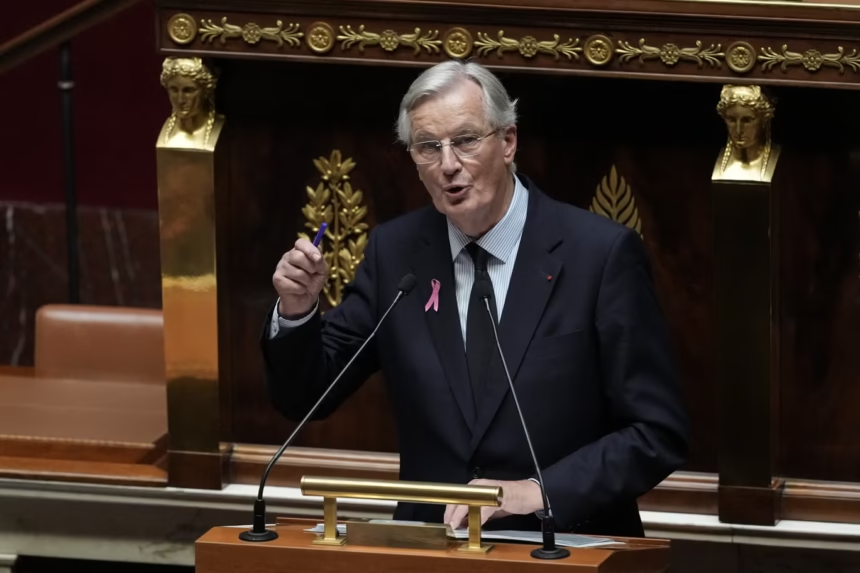PARIS, Dec 3 – The French government is on the brink of collapse as Prime Minister Michel Barnier faces a critical no-confidence vote on Wednesday. This comes after his use of special constitutional powers to push through a controversial social security budget bill, sparking outrage from both the far-right and left-wing parties.
Both the far-right National Rally (RN) and a coalition of left-wing parties, including the Socialists, Greens, the far-left, and the Communist Party, have announced they will vote in favor of the no-confidence motion, lodged on Monday afternoon. If passed, the motion would force the resignation of Barnier, who has held the position for just two and a half months.
This marks a rare and dramatic political crisis for France, as no French government has been ousted by such a vote since 1962.
Barnier’s Controversial Move Sparks Backlash
The political crisis unfolded after Barnier invoked Article 49.3 of the French constitution, which allows for the passage of a bill without a parliamentary vote in cases of deadlock. Despite a last-minute concession, Barnier failed to secure the support of the RN or other political factions for the bill, which aims to reduce France’s public deficit by implementing €60bn in tax hikes and spending cuts.
Marine Le Pen, leader of the National Rally, condemned Barnier’s actions, saying, “The French have had enough. Maybe they thought with Michel Barnier things would get better, but they were even worse.” She added that her party would table its own no-confidence motion but also support any similar bills proposed by other parties.
Mathilde Panot, from the far-left France Unbowed, echoed Le Pen’s sentiments, accusing Barnier’s government of undermining democracy and plunging France into political chaos. “We are living in political chaos because of Michel Barnier’s government and Emmanuel Macron’s presidency,” she said.
Impact on French Politics and the Economy
If the no-confidence motion succeeds, Barnier’s government will collapse, and French President Emmanuel Macron may be forced to form a new government. The crisis is already having a significant impact on the economy, with French stocks and bonds facing sharp declines. The euro also fell by 1 percent, marking its largest one-day drop since early November.
Barnier’s efforts to pass the 2025 budget have been hampered by a deeply divided parliament, leaving him to rely on RN support. The political instability is the latest in a series of challenges for Macron’s presidency, which is facing growing opposition from multiple political factions.
What Happens Next for France?
Should Barnier not survive the no-confidence vote, he will remain in office until Macron appoints a new government. Given the fractured nature of the French parliament, there is a possibility that the new coalition will face similar challenges, potentially prompting Macron to appoint a technocratic government to lead the country until new elections are held in summer 2025.
The political turmoil has also raised questions about Macron’s future, with some political groups calling for an early exit from office. However, Macron is set to remain in power until 2027, as he is ineligible to seek a third consecutive term.
As Barnier’s government teeters on the edge of collapse, the outcome of the no-confidence vote will be a crucial moment for France’s political future.







